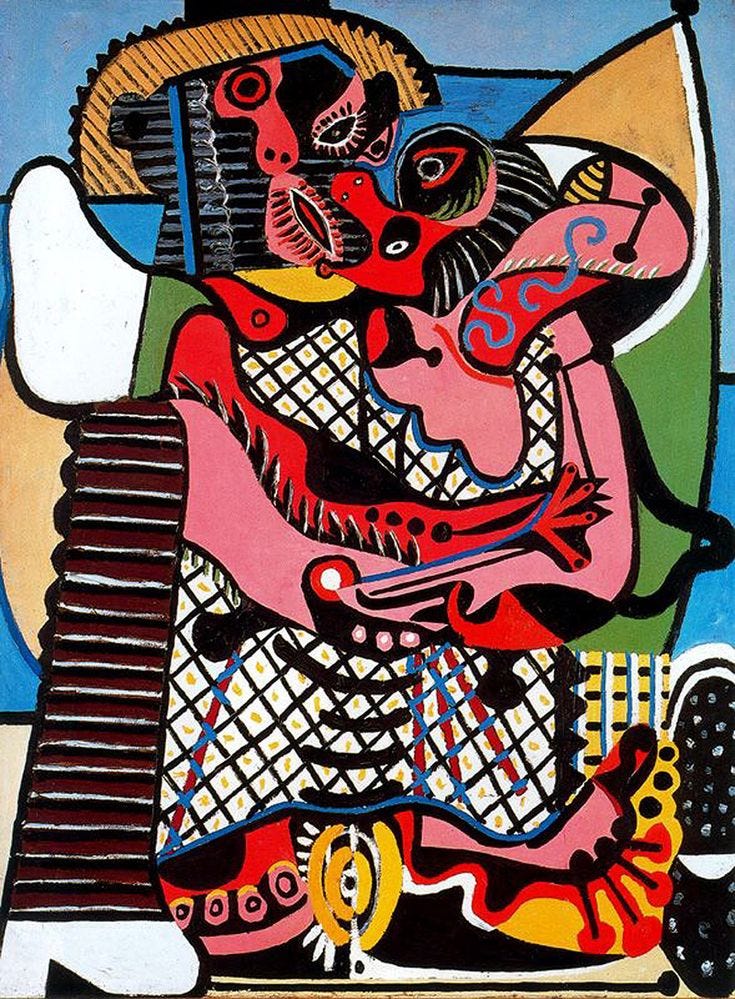Who is to Blame?
Intimacy reveals facets that we deny or reject in ourselves. Relationships may make us regard ourselves entirely as victims, the long-sufferers of our lovers’ hate.
Relationships unveil us, mirrored in the darkness of another’s eyes.
Intimacy always reveals facets that we deny or reject in ourselves. When healthy, they encourage us to embrace change and growth and become more whole. But less optimal forms imbue us with resistance and resentment.
Relationships may make us regard ourselves entirely as victims, the long-sufferers of our lovers’ hate. And there are many cases where we rightly identify deliberate harm. But more often, our partners are doing their best just as we are.
We may often find ourselves grappling with fault and blame when who is right or wrong has little bearing on the unfolding of equal partnerships. These relationships are not built on the objective truth of right and wrong (which I do not believe is out there). Instead, they deal with and challenge our definitions of fair compromise.
Commitment is the understanding that conflict is inevitable and the dedication to navigating disputes in ways that strengthen the union.
If the other person oversteps your boundaries you will let them know. You will try to remold them to better align with your ideal. If they do not make changes, you try again and again until it exceeds your limit on back and forths. At that point, you have to relinquish your will to fix the other and adapt to or loosen the bond.
Equality also relates to the responsibility you both have for issues within the relationship. While imbalances stemming from age, sex, or financial disparity can make the “weaker” party submit to the other’s feelings and opinions, take responsibility for and minimize the friction in the relationship, equal partners have to split it equally. As they strive towards this, it reflects in their conflict management.
Criticism is the blight that gnaws on our worth.
No one enjoys being criticized. No matter how laid back and receptive we are. We all have ego defenses that gear in when we feel attacked, and criticism almost always feels like an attack. When our partners feel they play no role in what is happening, they leave valid complaints in the form of criticism. They are apt to lead with “You” instead of “We” or “I”.
Compare
“You are always late”
To
“I wish I wouldn’t have to wait longer than our agreed time.” or “What can we do to ensure we are ready at the same time?”
The first sentence puts all the responsibility on the other person, which is easy because lateness is something most everyone would agree is wrong. However, I assume that the point of voicing out frustration is to prompt a change in behaviour. Yet, the “You” statement is the most likely to trigger defensiveness and unwillingness to adjust.
In contrast, the “I” statement expresses that you are responsible for your frustration because while it does not exist in a vacuum, it still comes from you, and there are other people who would overlook or at least ignore repeated lateness.
The “We” question is similar, it does not wag a finger at the other person but extends grace to them. It does not say, “You are a bad person,” but instead, “You and I can work together to be better”.
As we live and work with our loves, we must accept that they are, and will always be less than ideal. Fortunately, we can interpret their words and actions with kindness and understand that even the slightest shifts in habits, in ourselves and others, take effort and time. Because we love, we will invest patience and understanding to meet them halfway so they, too, can join us there.
Disclaimer: I, too, am still learning. It is a practice.
like, comment, connect with kuffy Eyo.






Absolute truth! There’s a lot to learn here. Thanks!